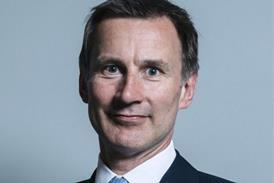In the first of a three-part series, Lubna Haq looks ahead to 2030 and the factors likely to influence future leaders. Megatrends: part 1 of 3.
Having experienced the rapidly changing nature of work across all types of organisations around the globe, Hay Group, in partnership with foresight company Z Punkt, set out to research what major factors are likely to be influential on leadership in the future.
As organisations merge, new organisations develop, and we continue to find ways of dealing with the worldwide recession and cuts to the public sector - leaders in all industries are beginning to recognise that the thinking and behaviour that was rewarded and made them successful in the past is unlikely to leverage the same success in the future.
Leaders cannot afford to bury their heads in the sand and hope that everything will go back to the way it was if we wait long enough. To be a thriving and competitive organisation in the future means an immediate shift in leadership behaviour or risking losing out in the race for innovation, the march to globalisation and the war for talent. Without this focus, they will be unsustainable.
‘The days when one or two “heroes” sat at the top of organisations dictating strategy are over’
Our research identifies “megatrends” for 2030. That is, the impact of long-term processes of transformation on a global scale with a broad scope and a dramatic impact. Megatrends are identified in three key ways:
Time - they are observable over decades and can be projected with a high degree of probability at least 15 years into the future;
Reach - they affect all regions and stakeholders, including governments, individuals and businesses;
Impact - they fundamentally transform policies, society and the economy.
This is important from an NHS perspective as it demonstrates the growing voice consumers have in the nature of services delivered.
The six megatrends that emerged are:
- accelerating globalisation;
- climate change, its environmental impact and scarcity of resources;
- demographic change;
- individualisation and value pluralism;
- increasingly digital lifestyles;
- technology convergence.
Several of these have been researched before but not in the context of leadership. We believe these megatrends will affect organisations and their leaders profoundly in the coming decades. We have analysed the implications these will have on organisations, on teams and at an individual level.
In this first article of three, we will focus on accelerating globalisation and what this means for the NHS and the rest of the public sector.
Accelerating globalisation
In the global environment there is a shift in economic balance of power to Asia. This requires a total western rethink about organisational power, culture and norms of behaviours. The West will need to adapt to the protocols of the East and not expect business to be conducted in the way they have been used to as dominant players.
Moreover, the rise of a global middle class means that people will regularly live in multiple countries and will go where the work is. They will routinely move around and the whole concept of “home” may change, raising issues of how to retain talent especially since the number of jobs in the west is falling; and rising in the East.
Money, and not just people, will become mobile as regulatory regimes change.
Implications for the NHS?
The NHS was founded to provide universal healthcare on the basis of need, and to be free at the point of use. Outsourcing and contracting is not new; it has been undertaken in many industries for many years.
However, there is an increasing need to think more strategically about both the procurement and delivery of these services. And the NHS relies on global private sector companies - for example, to provide medicines for patients.
During a time of great change, increased pressure on budgets and a significant reorganisation, outsourcing and contracting can work well in a few ways. It can help to achieve efficiency savings (because of the supplier’s bargaining power on costs, and potentially their expertise may be more extensive); also to give access to technology and innovation that can improve quality; and to transfer some risk and free up resources.
Therefore the NHS will likely be working with numerous companies experiencing globalisation that need to be aware of, and sensitive to, many changing political and economic sensibilities in different countries, which could reduce global interdependence and accessibility, at least in the short-term.
These companies will be grappling with adapting their global strategies for local markets and becoming more agile, while delivering on their contracts. For example, there is growing societal awareness about exploitation of workers as well as the conditions for production of medical equipment in places like Pakistan, which have an impact on quality and safety. Will current sourcing policies be sustainable?
It is not necessarily a new practice for medical staff to be globally mobile, but as the rest of society catches up, they will be more susceptible to losing clinical staff whose skills are so readily transferable. An increasing global focus creates more competition and new private health organisations could lure away the best talent.
How does this affect leadership?
One thing is for sure: the need for leaders will not change.
The strategic thinking and cognitive skills that leaders in global organisations will need to navigate this new world order are unprecedented. Good implementation and execution are no longer enough - if, indeed, they ever were. As well as being multilingual, flexible, adaptable and culturally sensitive, leaders will need to be highly collaborative and strong conceptual and contextual thinkers.
Additionally, they will need the ability to lead diverse teams over which they may have no direct authority, and to find new ways of engendering personal loyalty in an environment where the old loyalties between employer and employee are declining (due to the distance between them).
What’s more, the leadership task will be too big for one individual to handle on their own, making collaboration among a range of different people essential even at the stage of conceptualising challenges.
What globalisation makes abundantly clear is that the days when one or two “heroes” sat at the top of organisations dictating strategy are well and truly over.
For the NHS, this means working in true partnerships and collaboration, and moving away from siloed individual expertise that focuses mainly on processes.
It may also mean a greater focus on knowing who you need to retain and who you don’t.
In the next two articles we will be looking into the other megatrends and what they mean for the NHS and leaders: climate change, environmental impact and scarcity of resources; demographic change; individualisation and value pluralism; increasingly digital lifestyles; and technology convergence. And we will be concluding with an overall look at the implications for leaders, managers and HR in 2030.
Lubna Haq is director of healthcare consulting at Hay Group.
Future leaders will have to be tech-literate

Share ideas from our LinkedIn discussion
- 1
 Currently
reading
Currently
reading
Globalisation to herald long-term power shift
- 3





























2 Readers' comments